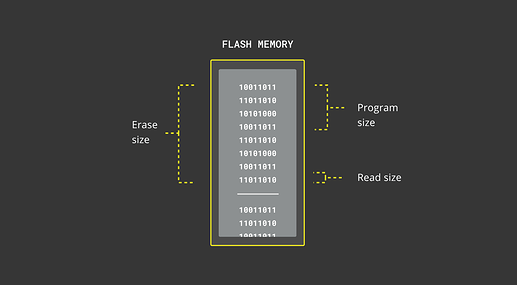Hi There,
Code looks good, I would add that the Count Variable needs to be declared as “Volatile” for one and you may have to Write a Page at a time with the QSPI as Block device?
HTH
GL ![]() PJ
PJ ![]()
So I tried this way and it works across resets, From the Wiki…
#include <Preferences.h>
Preferences preferences;
void setup() {
Serial.begin(115200);
delay(3000);
Serial.println();
// Open Preferences with my-app namespace. Each application module, library, etc
// has to use a namespace name to prevent key name collisions. We will open storage in
// RW-mode (second parameter has to be false).
// Note: Namespace name is limited to 15 chars.
preferences.begin("my-app", false);
// Remove all preferences under the opened namespace
//preferences.clear();
// Or remove the counter key only
//preferences.remove("counter");
// Get the counter value, if the key does not exist, return a default value of 0
// Note: Key name is limited to 15 chars.
unsigned int counter = preferences.getUInt("counter", 0);
// Increase counter by 1
counter++;
// Print the counter to Serial Monitor
Serial.printf("Current counter value: %u\n", counter);
// Store the counter to the Preferences
preferences.putUInt("counter", counter);
// Close the Preferences
preferences.end();
// Wait 10 seconds
Serial.println("Restarting in 10 seconds...");
delay(10000);
// Restart ESP
ESP.restart();
}
void loop() {
}
HTH
GL ![]() PJ:+1:
PJ:+1:
